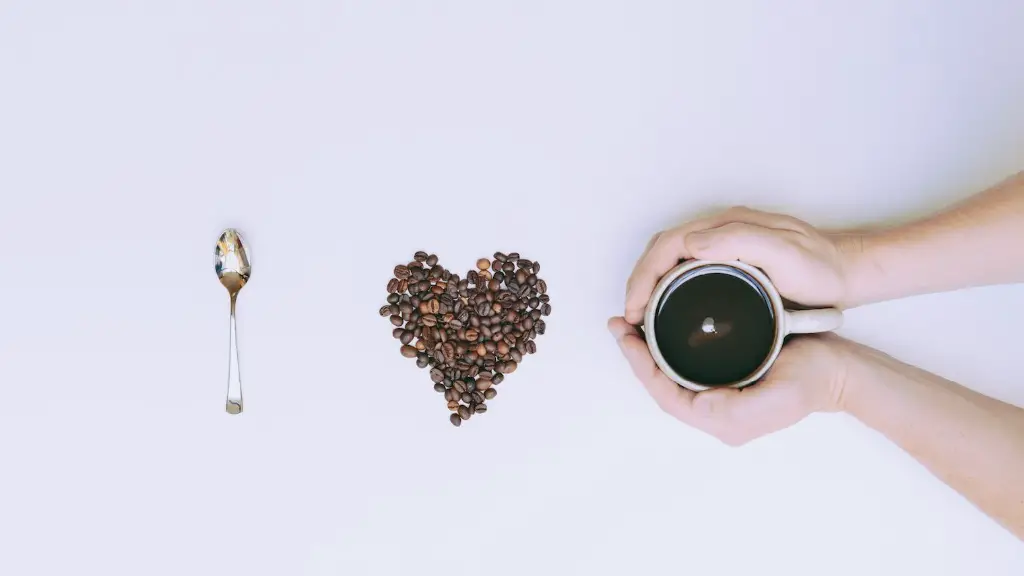What is Diverticulitis?
Diverticulitis is a medical condition in which small pouches form in the large intestine or colon. These pouches are known as diverticulae, and they can become inflamed or infected, leading to complications such as abdominal pain, fever, and even perforation of the colon. It is most prevalent in Western countries, and the condition usually occurs in people over the age of 40.
Role of Coffee in Diverticulitis
Coffee’s role in diverticulitis has been studied for many years and debate still remains over whether the beverage is beneficial or detrimental to both symptoms and treatment. It has been widely accepted that coffee can potentially aggravate diverticulitis, leading to increased inflammation and potentially severe complications. However, there is emerging evidence that coffee may not be as harmful as thought.
A 2014 study found that coffee consumption may serve as a protective factor against the development of diverticulitis. The study surveyed coffee consumption of over 27,000 participants, none of whom had diverticulitis. The results indicated that those who drank coffee had significantly lower odds of developing diverticulitis. A 2019 study showed similar results, finding that other forms of caffeine intake and decaffeinated coffee also reduce the risk of diverticulitis.
The Pros of Coffee Intake with Diverticulitis
While debate still remains on the role of coffee in diverticulitis, there are potential benefits to drinking coffee in moderation when dealing with the condition. Coffee has high concentrations of antioxidants such as phenolic compounds, which may reduce inflammation, reduce the risk of perforation, and relieve abdominal pain. Antioxidants are thought to reduce the risk of certain types of cancer and diverticular disease, as well as other chronic diseases.
Coffee also contains beneficial chemicals such as cafestol, kahweol, and theobromine, which can stimulate the digestive system, reduce nausea, and improve bowel movements. Furthermore, coffee contains large concentrations of the stimulant caffeine, which could potentially lead to improved overall gut health and wellbeing.
The Cons of Coffee Intake with Diverticulitis
On the other hand, some studies have found that coffee intake may worsen symptoms or have a negative impact on diverticulitis. Coffee can increase abdominal pressure and can potentially worsen abdominal pain. Caffeine may also increase anxiety and cause sleeping problems, which could then lead to worsened diverticulitis symptoms. Furthermore, some of the antioxidants in coffee may prevent the absorption of iron and other essential vitamins and minerals, leading to nutritional deficiencies.
Conclusion
It is important to note that individual results to coffee intake vary greatly and it is recommended to speak to a doctor before altering any current diverticulitis treatment plans. Coffee should be consumed in moderation, as too much caffeine can worsen symptoms. For those who wish to caffeinate their morning routine, decaffeinated coffee is a suitable option. In addition, it is important to choose your coffee carefully, as certain types of coffee may contain additives and preservatives, which can be detrimental to those with diverticulitis.
Reasons for the Development of Diverticulitis
The exact reason for the development of diverticulosis is not completely known, but there are a few factors that may potentially contribute to its development. Low-fiber diets are thought to increase the risk of diverticulitis, as fiber plays a big role in keeping the digestive tract healthy. Furthermore, age and lifestyle play a role, as the condition is more common in those over the age of 40 who lead sedentary lifestyles. Genetics is also a factor, as approximately 10 to 25 percent of people with diverticulosis reported having a family member with the condition.
Recommended Diet for Those with Diverticulitis
There is no special diet for those with diverticulitis, but certain foods are more beneficial than others. Foods that are high in fiber such as fruits, vegetables, whole grains, and legumes are beneficial for the digestive system, as they add bulk and make stool easier to pass. Omega-3 fatty acids, found in fish, nuts, and seeds, are also beneficial for those with diverticulitis, as they reduce inflammation. It is also recommended to eat smaller meals more frequently, as well as to stay hydrated by drinking plenty of water.
Symptoms of Diverticulitis
Diverticulitis can cause a range of symptoms, some of which can be difficult to distinguish from other medical conditions such as irritable bowel syndrome. Symptoms of diverticulitis include abdominal pain and cramping, fever, nausea, vomiting, and changes in bowel habits. The severity of the symptoms can vary depending on the individual, and if left untreated can potentially result in hospitalization.
Alternative Treatment Options for Diverticulitis
Treatment for diverticulitis is typically prescribed by a doctor, but there are also many alternative treatments that can potentially provide relief. Alternative therapies such as yoga, meditation, and massage can reduce stress and promote relaxation, potentially alleviating some of the symptoms of diverticulitis. Herbal remedies such as chamomile and ginger can also help reduce inflammation and combat nausea. Regular exercise is also beneficial, as it can improve overall gut health, reduce inflammation, and potentially reduce the risk of diverticulitis.


